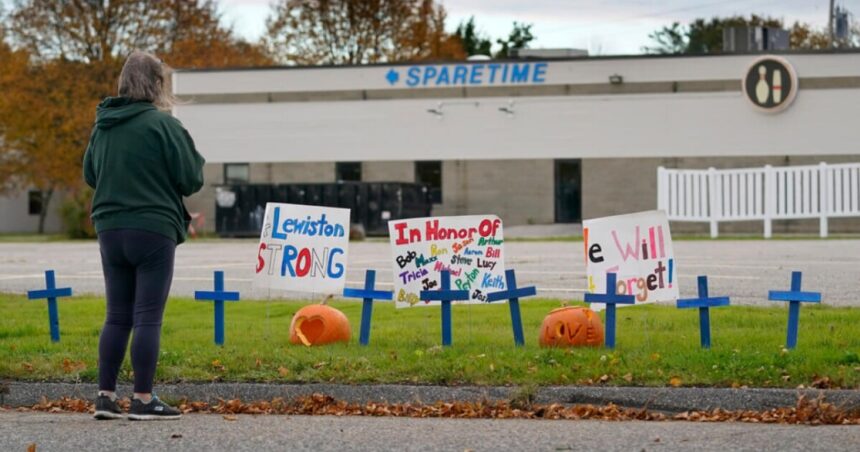Several months after a mass shooter killed 18 people in Lewiston, Maine last October, a group of sheriff’s deputies located nearly 30 miles away from the incident struggled to cope with the aftermath. The deputies were based in Sagadahoc County, where the shooter, Robert Card II, resided. A panel of experts investigating the shooting later criticized the agency for missing an opportunity to remove Card’s firearms before the attack.
Sagadahoc County Sheriff Joel Merry admitted that his agency received early criticism before all the facts were revealed, which was tough for his deputies. Despite the devastation caused by the shooting, Merry stands by the actions of his deputies in their interactions with Card.
Merry acknowledged the challenges faced by his agency in the past few months but emphasized the importance of being transparent and learning from the tragedy to prevent such incidents in the future. He expressed a desire to improve as an agency and as a state in handling similar situations.
Sgt. Skolfield’s Welfare Check
In September, a month before the shooting, Sgt. Aaron Skolfield was informed that Card had made threats about a mass shooting and had access to firearms. Despite Skolfield’s attempts to conduct a welfare check on Card, he was unable to make contact. Weeks later, the tragic shooting occurred.
An interim report by the state’s Independent Commission to Investigate the Facts of the Tragedy in Lewiston found that the sheriff’s office had missed opportunities to intervene. Merry defended his deputies’ actions based on the information they had at the time.
Conflicting Reviews
Two separate reviews of the incident yielded conflicting results. While a consultant hired by Sagadahoc County found the agency’s responses to be reasonable, the state commission investigating the incident identified additional faults, including a failure to consult a previous incident report that highlighted Card’s mental instability.
Merry remains committed to transparency and learning from the tragedy, even as the commission continues its inquiry into the involvement of other agencies in the events leading up to the shooting.
Mental Health and Yellow Flag Law
The agency is now working closely with a mental health liaison in crisis situations and reevaluating its approach to the yellow flag law, which requires individuals to surrender their firearms when deemed likely to cause harm. The agency has obtained multiple orders under the law since the shooting.
Moving Forward
In the aftermath of the shooting, Merry acknowledged the resilience and dedication of his deputies, who continue to serve their community despite the challenges they face. He expressed pride in his team and their commitment to protecting the community.





